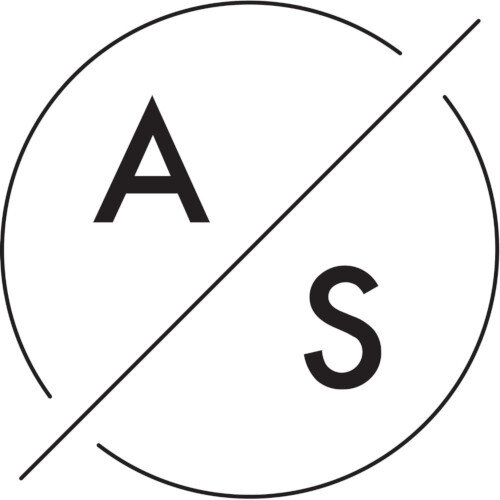Best Drunk Driving Lawyers in Acharnes
Share your needs with us, get contacted by law firms.
Free. Takes 2 min.
List of the best lawyers in Acharnes, Greece
About Drunk Driving Law in Acharnes, Greece
This guide provides clear, practical information for people facing drunk driving issues in Acharnes - a suburb of Athens in the Attica region. Greek law treats driving under the influence as a serious matter. Depending on the level of alcohol, whether an accident or injury occurred, and whether you are a repeat offender, the matter can be handled administratively, as a misdemeanor, or as a criminal offense. Procedures typically start with a police stop or accident response by the Hellenic Police, followed by sobriety tests, possible detention, and either administrative penalties or criminal charges filed at the local court.
Why You May Need a Lawyer
A lawyer experienced in traffic and criminal law can protect your rights and improve outcomes. Common situations in which you may need legal help include:
- Arrest after a roadside stop or an accident involving alcohol.
- High blood alcohol concentration results or contradictory test results.
- Charges for causing bodily harm or death while under the influence.
- Disputes about the accuracy or procedure of breathalyzer or blood testing.
- License suspension, vehicle impoundment, or complex administrative procedures.
- Cases with potential immigration, employment, or insurance consequences.
- Negotiating plea agreements, representing you at trial, or pursuing appeals.
Local Laws Overview
Below are the key legal features relevant to drunk driving in Acharnes and across Greece. This is a summary for informational purposes - specifics can vary with circumstances and recent legislative changes.
- Legal blood-alcohol limits: For most private drivers the commonly applied limit is around 0.05% BAC (0.5 g/L). Lower limits typically apply to novice drivers and professional drivers - often reported as around 0.02% BAC (0.2 g/L). Always confirm the exact limit that applies to your situation.
- Types of legal response: Authorities may impose administrative sanctions (fines, license suspension, vehicle impoundment) or pursue criminal charges when the offence is severe - for example, very high BAC levels, repeat offences, or when an accident causes injury or death.
- Testing and evidence: Police commonly use breath tests at the roadside and may require a blood test at a medical facility. Proper procedure and documentation are important - calibration records, chain of custody for blood samples, and written police reports are often contested in court.
- Refusal to test: Refusing a breath or blood test can have immediate consequences - administrative penalties, criminal charges, or negative inferences in court. Refusal is not a simple way to avoid consequences.
- Penalties: Possible penalties include substantial fines, suspension or revocation of the driving license, criminal convictions with potential custodial sentences for serious offences, and mandatory rehabilitation or alcohol-awareness programs in some cases.
- Procedure and courts: Minor administrative cases may be decided by traffic authorities or administrative tribunals. Criminal charges go to the local criminal courts. Acharnes residents typically deal with police and courts serving the Attica region. Proceedings are in Greek - non-Greek speakers should arrange an interpreter and legal representation.
Frequently Asked Questions
What is the blood alcohol concentration limit in Greece?
Generally, the limit applied to most private drivers is about 0.05% BAC (0.5 g/L). Lower limits - around 0.02% BAC (0.2 g/L) - commonly apply to new drivers and professional drivers. Exact limits and how they are enforced can change, so check current local rules or consult a lawyer.
What happens if I am stopped by the police in Acharnes?
If stopped, police may conduct a breath test and assess sobriety. If results suggest impairment, you may be taken for further testing, detained, issued a citation, or have your vehicle impounded. Police should prepare a report documenting the stop and tests. Ask for copies and write down witness names and details as soon as possible.
Can I refuse a breathalyzer or blood test?
Refusing a breath or blood test can lead to immediate administrative penalties, possible criminal implications, and may be used against you in court. Refusal is a serious decision - you should ask for legal advice as soon as you can. If you are unsure about your rights, request to speak with a lawyer and request that refusals and any warnings be noted in the police report.
What penalties could I face for drunk driving?
Penalties vary by severity. Possible consequences include fines, temporary or permanent loss of driving privileges, vehicle impoundment, criminal conviction, and imprisonment for grave offences - especially if there are injuries or fatalities. You may also face increased insurance costs and other civil liability for damages caused.
Will a drunk driving conviction become part of my criminal record?
Yes, if the offence results in a criminal conviction it will appear on your criminal record. Administrative sanctions alone may not create a criminal record, but more serious cases and convictions will. A criminal record can affect employment, travel, and professional licensing.
How long does a drunk driving case take to resolve?
Timelines depend on whether the case is handled administratively or criminally. Administrative matters may be resolved in weeks to months. Criminal cases often take longer - several months to over a year - depending on court schedules, the need for expert reports, and whether you appeal decisions.
Can I challenge the accuracy of a breathalyzer or blood test?
Yes. Common challenges include improper test procedure, device calibration and maintenance records, operator training, delays between driving and testing, or contamination of blood samples. A qualified lawyer can help obtain records, commission expert analysis, and identify procedural errors.
Do I have to appear in court personally?
For many criminal hearings your personal appearance will be required, though an experienced lawyer can appear on your behalf for some procedural steps. For initial administrative hearings or negotiations it is often possible for your lawyer to represent you. Non-Greek speakers should arrange an interpreter for court dates.
How will a DUI affect my insurance and civil liability?
Insurance companies commonly increase premiums after a DUI and may refuse coverage for accidents caused while intoxicated. You could also face civil claims from injured parties seeking compensation. Keep records and notify your insurer as required by your policy, and consult a lawyer about defending or negotiating civil claims.
How do I find a reliable lawyer in Acharnes or the Attica area?
Look for a lawyer with experience in traffic and criminal defence - ideally with specific DUI experience. Contact the Bar Association of Attica for referrals, ask for credentials and case history, request an initial consultation to discuss fees and strategy, and check client reviews or ask for local recommendations. Clear communication about costs and expected outcomes is essential.
Additional Resources
Below are the types of local bodies and organizations that can help you or provide authoritative information. Contact them for up-to-date procedures, forms, and official guidance.
- Hellenic Police - the local police station that handled the stop or accident can provide police reports and procedural information.
- Ministry of Infrastructure and Transport - for rules about licensing and administrative sanctions.
- Bar Association of Attica - for referrals to qualified lawyers who practice in Acharnes and Athens.
- Local courts serving the Attica region - for information on court schedules and filings.
- Victim support organizations and road safety groups - for assistance to injured parties or families and for information about rehabilitation programs and prevention resources.
Next Steps
If you are facing a drunk driving stop, charge, or related civil claim in Acharnes, consider the following practical steps:
- Stay calm and cooperative at the scene, but protect your rights - ask to speak with a lawyer as soon as you can.
- If tested, request copies of all test results and ensure the police report records relevant details - time, location, officer names, and any warnings read to you.
- Seek medical attention if needed and preserve medical records - those records can be important evidence in both defence and mitigation.
- Contact a local lawyer experienced in DUI cases immediately - a lawyer can advise about whether to challenge tests, negotiate with prosecutors, or prepare a court defence.
- Collect and preserve evidence - photographs, witness contact details, vehicle damage photos, and any other documentation that could support your case.
- Do not sign statements or plead without legal advice. Be cautious about providing detailed admissions at the scene.
- If you are not fluent in Greek, arrange an interpreter for police and court proceedings, and ensure your lawyer can communicate in a language you understand.
Remember - this guide is for general information only and does not replace personalised legal advice. For advice tailored to your particular case, contact a qualified local attorney as soon as possible.
Lawzana helps you find the best lawyers and law firms in Acharnes through a curated and pre-screened list of qualified legal professionals. Our platform offers rankings and detailed profiles of attorneys and law firms, allowing you to compare based on practice areas, including Drunk Driving, experience, and client feedback.
Each profile includes a description of the firm's areas of practice, client reviews, team members and partners, year of establishment, spoken languages, office locations, contact information, social media presence, and any published articles or resources. Most firms on our platform speak English and are experienced in both local and international legal matters.
Get a quote from top-rated law firms in Acharnes, Greece — quickly, securely, and without unnecessary hassle.
Disclaimer:
The information provided on this page is for general informational purposes only and does not constitute legal advice. While we strive to ensure the accuracy and relevance of the content, legal information may change over time, and interpretations of the law can vary. You should always consult with a qualified legal professional for advice specific to your situation.
We disclaim all liability for actions taken or not taken based on the content of this page. If you believe any information is incorrect or outdated, please contact us, and we will review and update it where appropriate.









